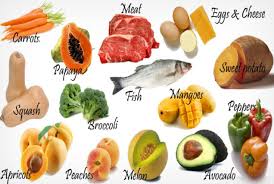Welcome to this series about Men’s Health. Enjoy the principles and I hope you can learn something new. Enjoy the benefits of good Men’s Health.
You are born with two kidneys, situated in the back of your abdomen on each side of your spine. Your kidneys are responsible for filtration by removing waste products from your blood and regulating your water and electrolyte balance.
The filtration results in the production of urine. This urine then flows from the kidneys to the bladder through two tubes called ureters. Your bladder is responsible for storing urine. Once it gets full, it sends signals to your brain that you need to void. The urine leaves the bladder and your body by flowing through your urethra. Males have a longer urethra than females. Collectively, this is known as your “urinary tract system.”
What exactly is a kidney stone?
A kidney stone is a solid mass that develops in the kidney when components of your urine – oxalate, calcium, and phosphorus – create crystals that conglomerate. As a result, kidney stones vary in their composition. Sizes can also vary from pieces of sand to one inch in diameter.
Kidney stones can travel from the kidneys and into the ureters, bladder, and/or urethra. Smaller stones can pass through your urinary system with hardly to no pain. However, the larger stones can cause severe pain in your lower abdomen and into the groin, nausea and vomiting, and even bleeding.

What are some of the risk factors for kidney stones?
Things you cannot control:
Gender, Age, and Family History.
Men are at increased risk for kidney stones. It also tends to occur in middle-age men between 30 and 50 years of age. Some families tend to have urine with more calcium in it, and this also increases the risk.
- Diseases
Gout and Crohn’s disease are two examples that increase your risk for kidney stone development. People with recurrent urinary tract infections also are at increased risk.
- Certain Medications.
Use of diuretics, also known as “water pills,” increase the risk of kidney stones. Topamax, a medication that is used for seizures or migraine treatment, is another example that increases the risk of kidney stones, particularly in those who do not drink enough water.
Things you can control and do to prevent/reduce the chances for kidney stones:
- Drink enough every day.
At least 2 liters (half a gallon) or 8-10 glasses of fluid each day is recommended. Aim for at least half of that to be water. You can gauge this by ensuring your urine is light, straw-colored, and not concentrated.
Stay away from sugary pop. New research illustrates that drinking lemonade may also be beneficial in preventing stones made of calcium oxalate. As just mentioned, the drug Topamax lists the risk of kidney stones as one side effect that can occur if you do not drink enough fluids when on this medication.
- Lose weight.
Overweight people are at increased risk for kidney stones. Part of the reason for this may be due to increased insulin resistance, and higher blood sugar levels.

Kidney stone diet
Change your diet.
Recommendations for your diet will depend on the type/composition of your kidney stones. For example, stones can be made of calcium oxalate, calcium phosphate, or uric acid. These can be analyzed by your healthcare provider.
When the composition of the stones is determined, a dietician can then more accurately help educate you on foods to avoid.
Foods that can cause problems include those high in oxalate (the latter is found in rhubarb, potato chips, spinach, beets, and nuts). Other potential problems are proteins. Red meat can also be a problem if you are prone to developing uric acid stones. Diets high in sodium can also cause problems, so you need to ensure that you are not getting extra sodium in canned and dry goods, processed meats, etc.
Your healthcare provider can also give you suggestions on how much Vitamin C you should be taking. This is because oxalate is a byproduct of the metabolism of Vitamin C, so if you are taking in too much Vitamin C, you increase the risk of developing oxalate kidney stones.
In addition, you may need guidance on how much calcium you should be taking. Calcium oxalate kidney stone development increases when you do not have enough calcium in your diet.
That is why it is important, whenever possible, to determine what kind of kidney stones you have. Then you can follow a plan that is tailored to your individual needs.
- Use medication.
Just like certain medications can increase the chances for stone production, some medications can also be used to reduce the chances of stones developing. Speak to your doctor to find out what possible options exist for you.
For more blogs please visit www.NicksDigitalSolutions.com and choose Nick’s blog.
For E-Learning material please visit www.NicksDigitalSolutions.com and choose E-Learning Shop, in particular the Health and Wellness option.
Nick Thorne is the founder of NicksDigitalSolutions Limited, a company specializing in Education, Training and Writing. He lives in Levin, New Zealand.
